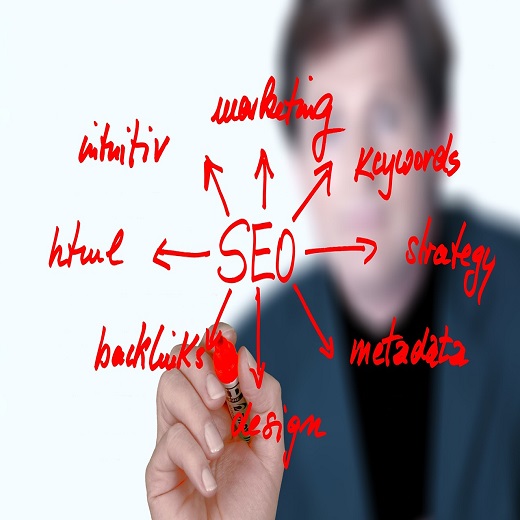To achieve this, two of the most prominent digital marketing strategies are Search Engine Optimization (SEO) and Pay-Per-Click (PPC) advertising. Both these methods have their merits, but deciding which one suits your business best requires a thorough understanding of their differences, advantages, and limitations.
Understanding SEO
Definition of SEO
SEO is the process of optimizing a website and its content to improve its organic search engine rankings. The goal is to enhance the website's visibility on search engine result pages (SERPs) for relevant keywords and phrases.
Importance of SEO for Businesses
SEO plays a crucial role in the online success of businesses. By appearing higher in search results, companies can attract more organic traffic, increase brand visibility, and establish credibility among their target audience.
How SEO Works
SEO involves various techniques such as keyword research, on-page optimization, technical SEO, link building, and content marketing. These practices collectively improve a website's authority and relevance in the eyes of search engines.
Key SEO Techniques
Keyword Research and Analysis
On-Page Optimization (Title tags, Meta descriptions, etc.)
Quality Content Creation
Link Building and Backlink Outreach
Website Speed and Mobile-Friendliness Optimization
Understanding PPC
Definition of PPC
PPC is an advertising model where businesses pay a fee each time their ad is clicked. It is a way to buy visits to your site rather than earning them organically through SEO.
Importance of PPC for Businesses
PPC offers immediate visibility on search engines and other platforms. It allows businesses to target specific keywords and demographics, making it an attractive option for generating quick leads and conversions.
How PPC Works
Advertisers bid on keywords, and when a user searches for a term related to their business, the ad is displayed on the search results page. The advertiser only pays when the ad gets clicked.
Key PPC Platforms
Google Ads
Bing Ads
Facebook Ads
Twitter Ads
LinkedIn Ads
SEO vs. PPC: A Comparative Analysis
Cost-effectiveness
SEO is generally more cost-effective in the long run, as organic traffic doesn't incur a cost per click. However, PPC can deliver immediate results and is more controllable based on budget constraints.
Timeframe for Results
SEO is a long-term strategy that requires patience before seeing substantial results. On the other hand, PPC can generate quick traffic and results as soon as the ad campaign is launched.
Click-Through Rates (CTR)
While SEO-driven organic results tend to receive more clicks overall, PPC ads can have higher CTRs, particularly for commercial keywords where users have high purchase intent.
Targeting Capabilities
PPC offers precise targeting options, allowing businesses to reach specific demographics, locations, and user interests. SEO, while focused on keywords, does not offer the same level of granular targeting.
Brand Awareness and Credibility
SEO can boost brand credibility by appearing organically on the search results, while PPC can create immediate brand awareness, especially for new businesses or product launches.
Choosing the Right Strategy for Your Business
Factors to Consider
Budget Allocation: Assess your budget and determine how much you can allocate to each strategy.
Business Goals and Objectives: Align your marketing objectives with the goals of your business.
Long-term vs. Short-term Goals: Decide whether you need immediate results or are willing to invest in long-term growth.
Combining SEO and PPC: Consider the benefits of using both strategies simultaneously.
The Synergy Between SEO and PPC
Enhancing Keyword Research
Using both SEO and PPC can provide valuable insights into which keywords are most effective in driving traffic and conversions.
Maximizing Search Visibility
Having a presence in both organic and paid search results increases the chances of capturing clicks and potential customers.
A/B Testing and Data Insights
PPC campaigns can serve as a testing ground for ad copy and landing pages, allowing for optimization before implementing changes in the organic SEO strategy.
Conclusion
When it comes to deciding between SEO and PPC, there is no one-size-fits-all answer. Each business has unique needs and goals, and a well-rounded marketing strategy may involve utilizing both approaches. SEO offers long-term value and credibility, while PPC provides immediate visibility and control. Ultimately, the best approach is to analyze your business's requirements, budget constraints, and marketing objectives to determine which strategy or combination of both is right for your business.
FAQs:
Q: Can I use both SEO and PPC together?
A: Yes, combining SEO and PPC can be a powerful strategy for maximizing search visibility and gathering valuable data insights.
Q: Which strategy is more cost-effective?
A: SEO is generally more cost-effective in the long run, as organic traffic doesn't incur a cost per click.
Q: How long does it take to see results from SEO?
A: SEO is a long-term strategy, and significant results may take several months to materialize.
Q: Is PPC suitable for small businesses with a limited budget?
A: Yes, PPC allows businesses to set their budget and only pay for clicks, making it accessible to smaller budgets.
Q: Can PPC ads help improve brand awareness?
A: Yes, PPC ads can create immediate brand awareness, especially for new businesses or product launches.







0 Comments